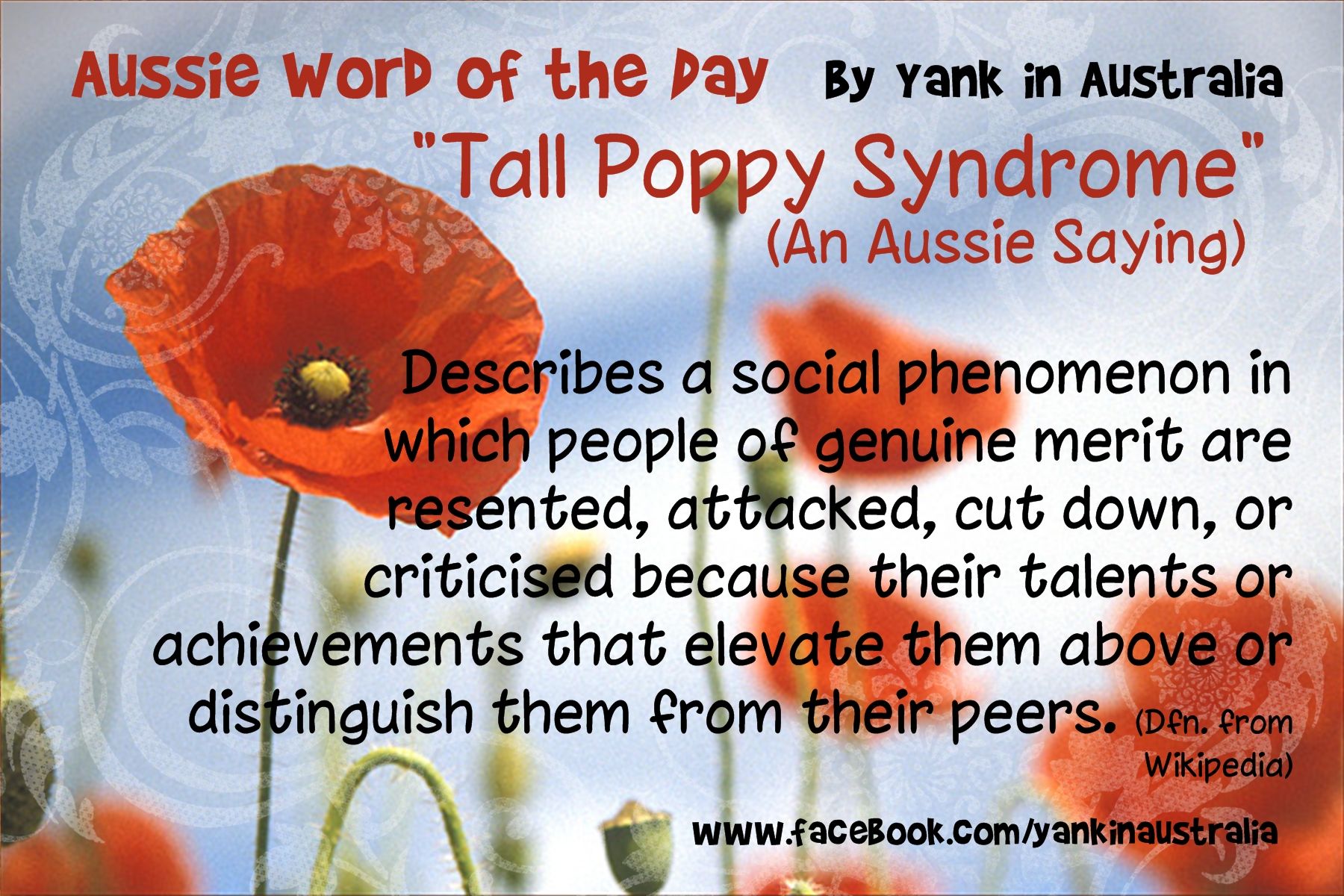Tall Poppy Syndrome, a concept deeply ingrained in certain cultures, particularly prevalent in Australia and New Zealand, has garnered attention worldwide for its unique social dynamics and implications. This phenomenon describes a societal tendency to criticize or discredit successful individuals, particularly those who stand out or achieve great success. In this article, we delve into the origins, manifestations, and consequences of Tall Poppy Syndrome, exploring its psychological underpinnings and broader societal impacts.
Origins of Tall Poppy Syndrome:
The term “Tall Poppy Syndrome” traces its roots back to Ancient Greece and Rome, where the concept of the “poppy” symbolized growth, vitality, and prosperity. However, this symbolism took a darker turn in the 17th century when English philosopher Thomas Hobbes used it to describe the resentment and envy directed towards those who achieved prominence or success. This notion evolved over time, finding resonance in various cultures, notably in Australia and New Zealand.
Manifestations and Characteristics:
Tall Poppy Syndrome manifests in various ways, often subtly ingrained in social interactions and cultural norms. One prominent characteristic is the tendency to downplay or criticize achievements and success, often under the guise of humility or egalitarianism. Individuals who excel in their fields or display ambition may face backlash or ostracization, as their accomplishments provoke feelings of envy or inadequacy in others.
Moreover, Tall Poppy Syndrome thrives in environments where conformity is valued over individuality. Deviating from societal norms or displaying ambition beyond the accepted boundaries can attract unwanted attention and criticism. As a result, individuals may feel pressured to conform to mediocrity, stifling innovation and progress.
Psychological Underpinnings:
At its core, Tall Poppy Syndrome reflects deep-seated insecurities and fears within society. Psychologically, individuals may engage in “social comparison,” whereby they evaluate their own worth based on comparisons with others. When faced with someone who surpasses them in achievements or status, feelings of envy and resentment can emerge, driving a desire to diminish or undermine the successful individual.
Moreover, Tall Poppy Syndrome can be viewed through the lens of “cultural cringe,” a phenomenon where individuals within a culture devalue their own accomplishments and instead idealize foreign standards or achievements. This cultural mindset reinforces the cycle of criticism and self-doubt, perpetuating the prevalence of Tall Poppy Syndrome.
Impact on Society and Individuals:
The impact of Tall Poppy Syndrome extends beyond individual interactions, influencing societal attitudes towards success, ambition, and innovation. In environments where Tall Poppy Syndrome prevails, individuals may hesitate to pursue their goals wholeheartedly, fearing the repercussions of standing out or achieving too much. This can hinder societal progress and stifle creativity, as conformity takes precedence over originality and risk-taking.
Furthermore, Tall Poppy Syndrome can have detrimental effects on mental health and well-being. Constant criticism and scrutiny of one’s achievements can erode self-confidence and contribute to imposter syndrome—a pervasive feeling of inadequacy despite evident success. This psychological burden can lead to stress, anxiety, and even depression, impacting both professional and personal spheres of life.
Overcoming Tall Poppy Syndrome:
Addressing Tall Poppy Syndrome requires a multifaceted approach encompassing societal attitudes, education, and individual resilience. Cultivating a culture of celebration and support for success, rather than envy or criticism, is essential in fostering a more inclusive and empowering environment. Encouraging individuals to embrace their achievements and aspirations without fear of judgment is crucial in breaking the cycle of Tall Poppy Syndrome.
Moreover, promoting resilience and self-confidence in individuals can help mitigate the psychological toll of Tall Poppy Syndrome. By nurturing a sense of self-worth independent of external validation, individuals can navigate criticism and setbacks with greater resilience and determination.
Conclusion:
Tall Poppy Syndrome represents a complex interplay of social dynamics, cultural norms, and psychological factors. While deeply ingrained in certain societies, it is not insurmountable. By fostering a culture of support, celebration, and resilience, we can mitigate the negative impact of Tall Poppy Syndrome and create a more inclusive and nurturing environment where success is celebrated rather than resented. Through understanding and addressing Tall Poppy Syndrome, we can unlock the full potential of individuals and society as a whole.
